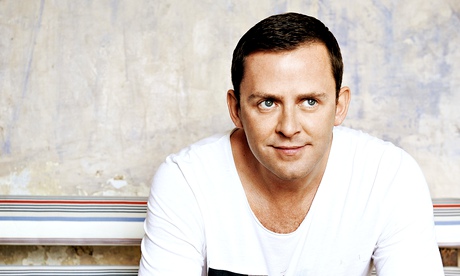
Visiting Radio 1 in 1977 meant going to Egton House, an unlovely building at the side of Broadcasting House with the cheerless, municipal feeling of "the Circus" in Tinker Tailor Soldier Spy. The producers, overwhelmingly male, worked in tiny hutches full of records. The secretaries, all female, hammered away in a typing pool.
When you visit Radio 1 nowadays you take the glass-sided elevator to the top of New Broadcasting House. Here on a clear day you can see as far as Crystal Palace. Stylish young people sporting laminates and lanyards waft around looking for somewhere to lay their laptops. It feels more like the campus of a Californian software company than anything so platform partisan as a radio station, particularly not the one that used to be in Egton House.
You can't help reflecting that when they were in Egton in 1979 more than 16 million people listened to Radio 1. These days it's under 11 million. Which is still an awful lot but the drop shows that the world has changed and will presumably continue to do so.
I went there recently at the invitation of Ben Chapman, who is head of popular music, multi-platform. We didn't meet in Tommy Cooper but in every other respect it felt like a scene from W1A.
Chapman and the BBC face many challenges. The first is that ownership of a big ass transmitter and a humongous record library no longer gives you the undivided attention of young people. That old Lou Reed quote "you need two radios in case one gets broken" wouldn't resonate with many of them. Hence Chapman and others are looking to the other platforms on which young people loiter. They're fishing where the fish are.
The launch of Playlister last year was a BBC toe in that water. With Playlister you can click songs that you particularly like from the BBC's output, save them in your own playlist and then export a list of them to a site like Spotify or Deezer and listen to them at your leisure.
Chapman says it's one of the ways "the BBC is using music to tell stories". At the moment it still feels like a solution in search of a problem. It's had enough take-up to make the commercial partners very grateful for the profile the BBC has helped build for them but it's not quite a mainstream habit. Idleness has a habit of winning when it comes to the web and soft benefits are easily forgotten when the next toy comes along.
The move to other platforms also means thinking visual. To listen to Radio 1 nowadays is to be regularly instructed to go somewhere else for a complementary – or better – experience. The Scott Mills feature Innuendo Bingo, for instance, only makes sense when you can actually see the celebrity expel water from their mouth on hearing fnarr fnarr commentaries from BBC documentaries. (Shame Lord Reith missed this one.) It works, of course. In fact it's generally more popular than music. The big clips get over a million hits. But then again when YouTube pranksters the Slow Mo guys burst a huge water balloon they get 50m. It's a big, wide, flat world and its appetite for stupid entertainment is unlimited. That's both an opportunity and a challenge.
If you're a digital native you've grown up knowing that there is more music and entertainment available to you free than you could ever get round to in your life. This understandably makes them blase and a big challenge for the BBC.
Tony Hall will be acutely aware that the people who will be really hard to convince about the licence fee are the social media generation. They're not interested in channels and there is evidence that they're not bothered about brands either. That's not ideal if you've put all your effort into building yourself as both.
The move to social media has resulted in a tilting of the power balance which comes as a surprise to big media organisations, particularly ones that have just moved into HQs that remind them of their own massiveness. The BBC needs those teenagers an awful lot more than those teenagers need the BBC. Maybe the corporation doesn't realise that yet. The BBC Playlister page on Spotify lists all the listeners who are following its various DJ-originated playlists. It then says "the BBC is not following anyone yet". I wonder if that will change.

